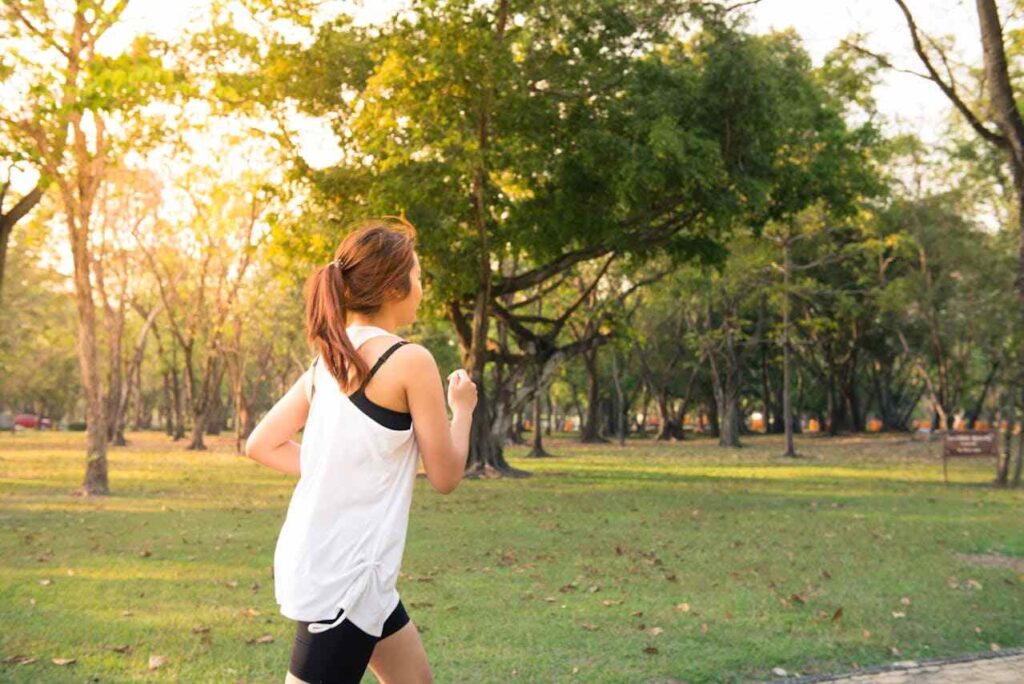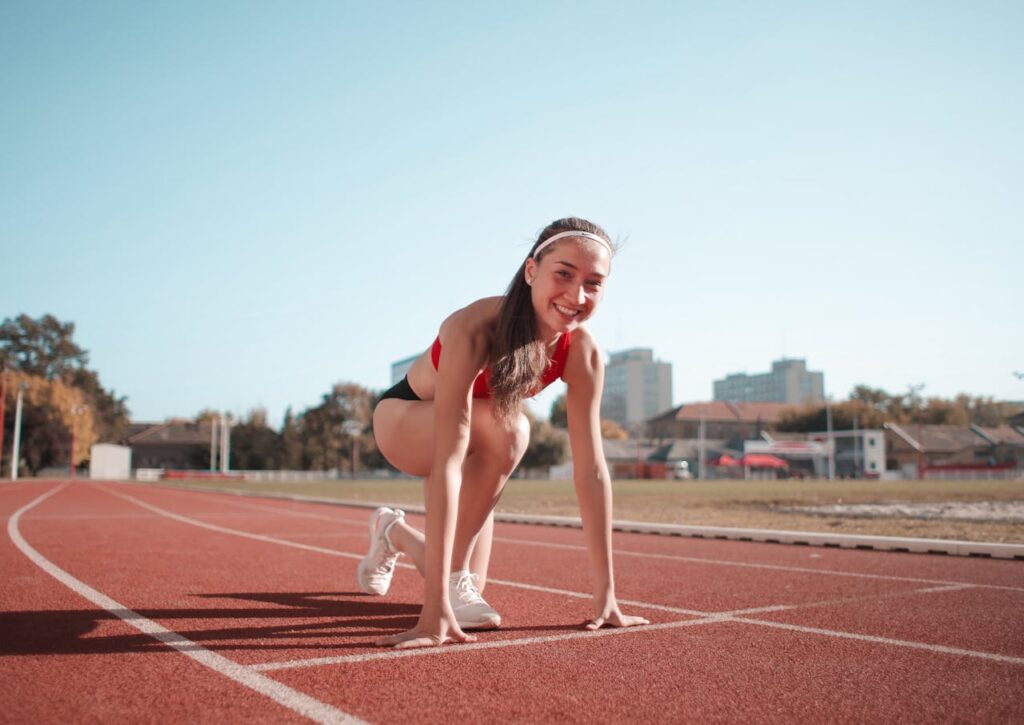Choosing an Extended Essay topic in IB Sports and Health Science can define your academic path. As a seasoned IB writer with years of experience, I understand the importance of this decision. That’s why I’m eager to share my insights and help you choose a topic for the Sports and Health Science Extended essay that meets the general IB criteria and sparks your interest and passion.
What Is IB DP Sports and Health Science Course?
The IB Sports, Exercise, and Health Science (SEHS) course is a dynamic, interdisciplinary course that provides an exciting opportunity for students interested in the scientific aspects of sports, exercise, and health. It uniquely integrates theoretical knowledge with practical investigation, fostering a deep understanding of the scientific principles influencing physical performance, health, and well-being.
Here’s a more detailed look at what the IB DP Sports, Exercise, and Health Science course entails:
- At its core, the course covers a wide range of topics from anatomy and physiology to energy systems, ensuring students have a solid foundation in the biological sciences related to sports and exercise.
- Students engage in practical activities and experiments, applying their theoretical knowledge to real-world contexts. This hands-on approach reinforces their learning and sharpens their investigative skills.
- An intriguing component of the course is the psychological aspects of sports, including motivation, anxiety, and teamwork. Understanding the mental factors that impact performance is crucial for anyone looking to excel in sports or health sciences.
- The course digs into the principles of nutrition and its impact on physical health and athletic performance. Students learn about the importance of diet in maintaining optimal health and enhancing sports performance.
- Students explore how the body responds and adapts to exercise. It includes studying the effects of training on muscle development, cardiovascular health, and respiratory efficiency.
- The course also covers strategies for preventing sports-related injuries and the basics of rehabilitation. This knowledge is essential for anyone interested in sports medicine or health care professions.
So, the IB DP Sports, Exercise, and Health Science course equips students with the knowledge and skills needed to analyze and understand the complex interactions between sport, health, and exercise. Moreover, it encourages students to think critically and scientifically about current issues and developments in these fields.

Sports, Exercise, and Health Science Extended Essay Topics
Remember, you’ll spend significant time researching and writing about this topic, so choose something you’re genuinely interested in. Whether it’s the biomechanics of a tennis serve, the nutritional strategies of elite athletes, or the psychological resilience in competitive sports, ensure your topic is specific enough to explore in-depth yet broad enough to allow for comprehensive research. Here are some ideas:
- The Impact of Sleep on Athletic Performance. How do sleep duration and quality affect the performance of high school athletes in endurance sports?
- Nutrition’s Role in Muscle Recovery. How do protein supplements affect muscle recovery and performance in collegiate athletes?
- Psychological Resilience in Competitive Sports. How do coping strategies influence psychological resilience among professional athletes in individual vs. team sports?
- Biomechanics of the Perfect Free Kick. What biomechanical factors contribute to the accuracy and power of free kicks in elite soccer players?
- High-Intensity Interval Training (HIIT) vs. Traditional Endurance Training. How does HIIT compare to traditional endurance training in improving cardiovascular health in adolescents?
- The Effectiveness of Pre-Game Rituals. Do pre-game rituals have a measurable impact on collegiate basketball players’ performance and anxiety levels?
- Wearable Technology and Athletic Performance. How does the use of wearable technology influence training outcomes and injury prevention in long-distance runners?
- Gender Differences in Sports Injuries. Are there significant differences in the recovery outcomes of ACL injuries between male and female high school athletes?
- The Role of Mental Imagery in Skill Acquisition. How does mental imagery affect the acquisition of complex motor skills in competitive gymnasts?
- Environmental Factors and Marathon Performance. What impact do environmental conditions have on the performance times of marathon runners?
- Sports and Adolescent Mental Health. Can regular participation in team sports reduce symptoms of depression and anxiety in adolescents?
- Ergogenic Aids and Ethics in Sports. How do perceptions of the ethical use of ergogenic aids differ among college athletes in endurance vs. strength sports?
- The Physiology of Overtraining Syndrome. What physiological markers best indicate the onset of overtraining syndrome in college swimmers?
- Nutritional Strategies for Peak Performance. How do carbohydrate-loading strategies the week before competition affect the performance of collegiate track athletes?
- Yoga and Athletic Performance. Does incorporating yoga into the training regimen of high school soccer players improve their flexibility, balance, and overall performance?
- Cardiovascular Responses to Different Types of Exercise. How do the immediate cardiovascular responses compare between high-intensity interval training (HIIT) and steady-state endurance training in young adults?
- Impact of Mindfulness Meditation on Athletic Performance. Can mindfulness meditation practices improve concentration and performance outcomes in elite archers?
- Sports-Induced Asthma in Adolescent Athletes. What preventive strategies most effectively manage sports-induced asthma among high school athletes in endurance sports?
- Hydration Strategies and Endurance Performance. How does a personalized hydration strategy based on sweat rate affect the endurance performance of marathon runners?
- Strength Training’s Effects on Adolescent Athletes. What impact does an age-appropriate strength training program have on injury rates among adolescent soccer players?
- The Psychology of Sports Team Leadership. How does the leadership style of a team captain affect team cohesion and performance in high school basketball teams?
- Effect of Altitude Training on Sea-Level Performance. Does altitude training give collegiate middle-distance runners a competitive edge in sea-level performance?
- Concussion Management Protocols in Youth Rugby. How effective are current concussion management protocols in preventing long-term cognitive deficits in youth rugby players?
- The Role of Genetics in Muscle Hypertrophy. How do variations in the ACTN3 gene influence muscle hypertrophy in response to resistance training in young adults?
- Dietary Fats and Cardiovascular Health in Athletes. What is the impact of a high-fat vs. a high-carbohydrate diet on the cardiovascular health markers of amateur long-distance cyclists?
- Biomechanical Analysis of Yoga Poses. How do biomechanical factors of balance and flexibility in yoga poses influence injury prevention in amateur runners?
- Physical Activity’s Effect on Academic Performance. Does participating in structured physical activity programs improve IB students’ academic performance and cognitive function?
- Social Media’s Influence on Young Athletes’ Mental Health. What impact does social media exposure have on the self-esteem and anxiety levels of adolescent competitive swimmers?
- Wearable Fitness Trackers and Motivation. How do wearable fitness trackers affect college students’ motivation and physical activity patterns?
- Recovery Techniques and Muscle Soreness. Which recovery technique is more effective in reducing delayed onset muscle soreness (DOMS) among amateur weightlifters: cryotherapy or foam rolling?
- The Efficacy of Dynamic vs. Static Stretching on Performance. Does dynamic stretching improve short-term performance more than static stretching among collegiate sprinters?
- Mental Health Benefits of Regular Physical Activity in Adolescents. How does regular participation in physical activity affect levels of stress and anxiety in high school students?
- The Impact of Caffeine on Physical Endurance. What effect does caffeine consumption have on the endurance levels of amateur cyclists during time trials?
- Technology’s Role in Enhancing Training Regimens. How does virtual reality (VR) technology impact the skill development of youth soccer goalkeepers in training sessions?
- Female Athletes and the Risk of ACL Injuries. Why are female athletes at a higher risk of ACL injuries, and what preventive strategies can be implemented in high school sports programs?
- Doping’s Psychological Effects on Athletes. What are the long-term psychological effects on athletes who have been caught doping in competitive sports?
- Nutrition’s Role in Cognitive Function for Athletes. How does nutrition impact elite chess players’ cognitive function and decision-making abilities during competitions?
- The Influence of Social Support Systems on Athletic Recovery. How does the presence of a social support system affect the recovery speed of athletes after major surgery?
- Exercise Addiction: Physical and Psychological Outcomes. What are the physical and psychological outcomes of exercise addiction in amateur marathon runners?
- The Role of Physical Activity in Aging Populations. How does a structured physical activity program influence the quality of life and mobility in individuals over 65 years old living in retirement communities?
- Comparative Analysis of Training Regimes. How do traditional weight training regimes compare to plyometric training in enhancing the sprint speed of amateur athletes?
- Hydration and Athletic Performance. What role does hydration play in cognitive performance during endurance sports?
- Impact of Music on Exercise Performance. How does listening to different genres of music affect the performance and endurance of collegiate rowers during training?
- Sports and Environmental Conditions. How do varying environmental conditions affect the physiological responses of athletes during outdoor competitions?
- Kinematics of Swimming Strokes. What are the kinematic differences between butterfly stroke techniques among swimmers at different skill levels?
- Exercise and Bone Health in Adolescents. How does participation in high-impact sports influence bone density and strength in adolescent females?
- Sports Psychology and Coaching Strategies. How do different coaching strategies affect anxiety and performance in young competitive gymnasts?
- Ergonomics of Athletic Footwear. How does the design of athletic footwear influence injury rates and performance among professional basketball players?
- Social Influences on Exercise Habits. How do peer groups influence teenagers’ exercise habits and physical health outcomes?
- Posture and Athletic Performance. How does posture correction through targeted exercises affect the performance of amateur cyclists?
- Dietary Supplements and Athlete Health. What are the long-term health impacts of continuous use of creatine supplements in collegiate football players?
- Mental Health Interventions for Athletes. What are the effectiveness and outcomes of mindfulness-based stress reduction techniques on the mental health of elite athletes during the competitive season?
- The Impact of Altitude on Training Adaptations. How do training adaptations differ between athletes training at sea level and those training at high altitudes?
- Wearable Tech and Recovery Metrics. How accurately do current wearable technologies measure recovery metrics, and how do these measurements influence athlete training plans?
- Gender and Recovery Strategies. Are there gender-specific differences in the effectiveness of recovery strategies post-competition among elite athletes?
These topics span a broad spectrum of interests within the IB SEHS field, offering various angles for investigation. When choosing your topic and formulating your research question, it’s crucial to consider the feasibility of conducting your research within the scope of the IB EE guidelines. Remember, a well-chosen topic and a clearly defined research question are the keystones of a successful Extended Essay.
Don’t let the stress of the IB curriculum hold you back.
Are you struggling to come up with topic suggestions for your IB Extended Essay? Or do you need help with Internal Assessment?
Our experienced writers can help you choose the perfect topic and assist you with any assignment.
You can order an Extended Essay tailored to your specific subject and requirements.
Our experienced IB writers are always ready to help.
Simply click:

Topics to Read:
- IB Extended Essay Topics: Business and Management
- IB Extended Essay Topics: Physics
- IB Extended Essay Topics: Economics
- IB Results Remark Procedure
- How to Make Awesome IB Notes?
- What Is the New IB Economics Syllabus?
- IB Oral Presentation Ideas and Examples
- 70+ CAS Project Ideas for IB Students
- World of IB Acronyms: From EE to TOK, Making Sense of It All
- Benefits of Pursuing a Second Language at IB Higher Levels
Conclusion
In conclusion, selecting and researching an Extended Essay topic in Sports and Health Science is an incredible opportunity to explore your interests deeply. From my experience, students who choose themes they are passionate about perform better and enjoy the process more. So, take this advice to heart, dig into your research enthusiastically, and don’t forget to enjoy every step! Also, if you need some help with Extended Essay writing, just contact our IB experts!




